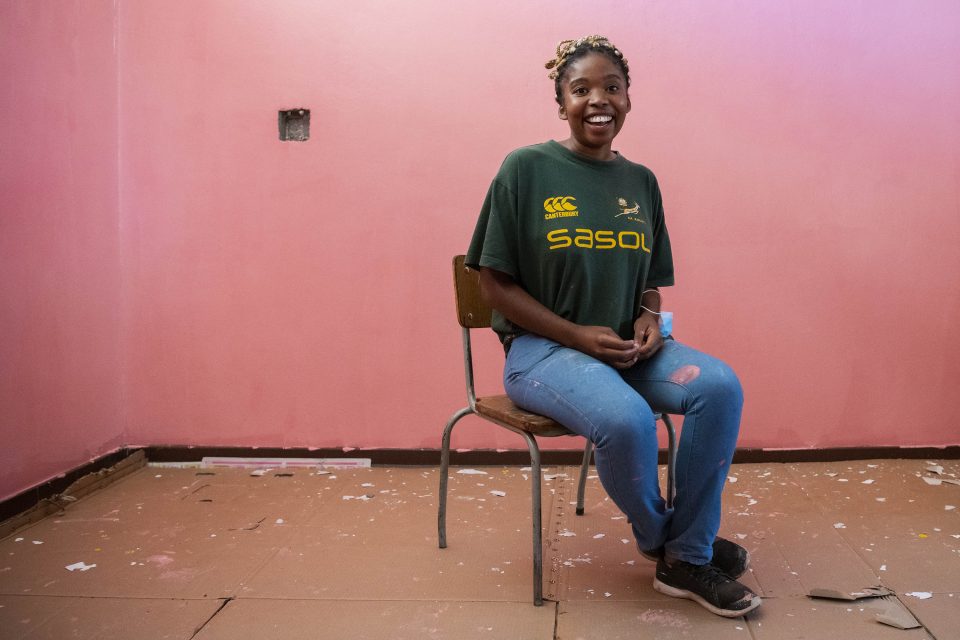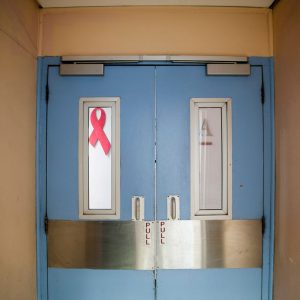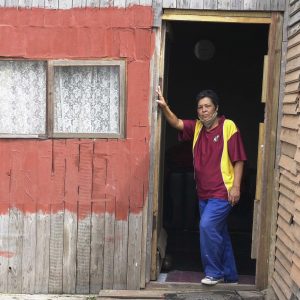The Pink Forum is a safe space to talk about life
A non-governmental organisation is taking an innovative approach to helping schoolchildren and survivors of gender-based violence who need emotional support.
Author:
10 December 2020

The founder of The Pink Forum, Mandisa Jiyane, met 17-year-old Nokuthula Skosana while hosting workshops to empower pupils at high schools. Soon after, Skosana fell gravely ill.
“I was sick that entire year and I ended up in the hospital. I thought I had a lung infection. The nurse asked why I’m not taking my medication, and I told her I am taking antibiotics. She asked, ‘Why aren’t you taking your antiretrovirals?’ and I asked her what she was talking about. She told me I am HIV-positive,” says Skosana. Her parents had never informed her of her HIV status.
Jiyane, 26, says Skosana followed her around school for a few weeks before finally telling her how she had found out she is HIV-positive. “We encouraged her to take medication and also to have a conversation with her mom because she could no longer look her mom in the eyes,” says Jiyane.
Related article:
Now in matric, Skosana has started the KuNokuthula Foundation to raise awareness about HIV and Aids.
“I started the foundation to help youngsters like me who are going through the same thing. HIV doesn’t define you, it is just in your blood… I just wanted to remove the stigma around HIV and Aids. It’s okay to talk about cancer, but as soon as you talk about HIV, everyone raises their eyebrows. I want everyone to talk about it anytime without raising eyebrows,” she says.
Skosana is one of the pupils who inspired the birth of The Pink Forum, which Jiyane founded in April 2019 as an upliftment initiative for girls and young women. Through the forum, the Kempton Park resident helps set up safe spaces in high schools for all pupils in need of help.
7 November 2020: Volunteers for The Pink Forum say helping others keeps them busy and out of trouble. “The Pink Forum helps the communities,” says one volunteer. “We want to be part of the solution.”
After completing her marketing studies in Stellenbosch, Jiyane returned to Johannesburg and needed work experience. None of the companies she had applied to responded, so she contacted a local high school with a low-profile online presence, hoping to help with its marketing strategy.
“While I was there doing marketing, I started initiating programmes because I was exposed to the social issues that the children were going through and I felt like something should be done within the school system,” she says.
Getting children to talk
Jiyane first started MyBeautifulSchool, which focused primarily on empowerment workshops and motivational talks, while also collecting sanitary pads for girls. She also started hosting “Take Care” events during which pupils would get to know each other better and share details about their backgrounds. In one activity, students would tell each other about something they’re going through by completing the sentence, “If you really knew me, you would know that…”
“For the longest time, students would tell me the most intense stories of what they were going through during these workshops,” says Jiyane. “Unfortunately, we couldn’t go back to see if these issues were dealt with.”

The initiative was extended to offer more than just social support. Collaborating with other organisations, programmes such as gardening and career counselling were added.
“As we were going to these high schools, we realised that some issues were too intense to just leave them as is,” says Jiyane. “I am not a psychologist or social worker, so I set up these rooms and had these people accessible in one space [for pupils to] receive social support in a comfortable space.”
Jiyane started asking schools if she could use any abandoned classrooms for this purpose. She enlisted the help of volunteers to clear them out and paint them pink.
-

7 November 2020: Volunteers with the Pink Forum help to refurbish and pink a classroom. Picture: Ihsaan Haffejee -

7 November 2020: Volunteers with the Pink Forum help to refurbish and pink a classroom. Picture: Ihsaan Haffejee
“We have introduction sessions with the students, some workshops [too], and within those we fit in social workers so they can pick up what’s happening with some students. We then let them know that The Pink Room will be opened the week after if they have any issues they want to discuss,” she says.
There is also a Pink Box into which students can drop a note if they are experiencing problems. These notes are usually shared with a social worker.
“As Black children, we have not normalised having talks [about sensitive issues] with our parents,” says Skosana. “So with my mom, I could talk to her because The Pink Room helps. It’s a very good thing. We tend to act differently at home and at school.”
Confidence to open up
Busisiwe Mbonani, a 19-year-old student at the Tshwane University of Technology, met Jiyane at one of the workshops while she was still in grade 10, before The Pink Forum was founded. She was encouraged to speak about things she found hard to discuss in the normal school and home environment. She says the sessions helped her to embrace her voice and understand that she is worthy of being heard.
“People in different grades… everyone started opening up,” says Mbonani. “I felt so comfortable and so did everyone talking about their background. It [the workshop] taught me that it’s okay to open up about your story, it’s okay to talk about things, be yourself and not hide or let insecurities ruin your life.”
Mbonani says these discussions helped because she was “struggling with my career path and I didn’t know where I was going in life”.

Njabulo Langa, 20, a volunteer for The Pink Forum, says helping others keeps him busy and out of trouble. “We get to push time instead of chilling in the township doing nothing. We learn a lot from all this work. It teaches us a lot and takes us out of trouble [and stops us] from abusing drugs. The Pink Forum helps the communities and we want to be part of the solution by helping the community,” he says.
Langa says meeting young men who had fallen into the clutches of nyaope but are now in rehabilitation has served as a warning not to follow in their footsteps. “[They] warn me and tell me to stay away from bad friends. They tell me no matter how good my life is, I must stay away from this drug because it’s ruined their futures… I learn through them,” he explains.
Jiyane says the aim is to have social workers at schools at least two to three times a week, but it’s not easy because they help on a voluntary basis. The forum hopes to formalise a partnership with the local office of the Department of Social Development to get more social workers involved.
No child is an island
Bridgette Makutu, 45, is a social worker who has been working with The Pink Forum for a year. She met Jiyane while volunteering her services as a parent and realised that pupils’ behaviour reflected what they were experiencing at home.
“A learner is not an isolated human being,” says Makutu. “They are coming from a community and they have a family structure and there is an exchange of ideas… We also do home visits and see the environment in which the child is functioning.”
Makutu says the forum often intervenes if a pupil’s behaviour creates problems in class. “After working with the learner, The Pink Forum facilities the interaction based on the assessment we have done. We have a workshop with the parents and learners. There’s a good story to tell there – a lot of parents say they are happy because they have asked the schools to get involved.”
Related article:
Makutu says she has experienced trauma after hearing gruesome stories that make her question the world she is living in. But this is not her only concern. “We also have challenges within The Pink Forum because we need donations, data, transport for home visits and sponsorships. Each and every school should have social workers. Learners have so many challenges and the educators are not equipped to deal with such because children display challenging behaviours,” says Makutu.
“People are encouraged to work on a voluntary basis, so unemployed graduates don’t want to volunteer… we are short-staffed,” adds Jiyane.
The forum recently launched a Pink Room at Tembisa South Police Station in Ekurhuleni for the use of gender-based violence survivors. Three more have been launched at schools in Tembisa since 10 October. “Covid-19 has impacted the work we do heavily, so we are really delayed,” says Jiyane. “By now we were supposed to be done with renovations and setting up new rooms.”
In her experience, Jiyane says, children themselves are usually not at the receiving end of violence at home. Instead, it’s one of the parents and they tend to keep quiet about their pain.
“We want to encourage children to end the silence… Families put small children through so much and they think the children are not picking up on anything, but they pick up on everything.”





